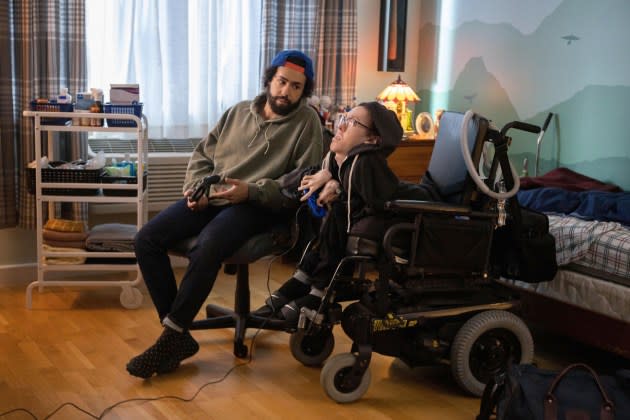66% Of Audiences Unsatisfied With Representation Of Disability & Mental Health In Entertainment, Inevitable Foundation Report Finds

Inevitable Foundation, the non-profit advocating on behalf of the disabled filmmaking community, on Wednesday unveiled a new report examining how the global disability audience continues to be underserved across the streaming and theatrical landscapes, despite representing a large and engaged demographic.
The “Audiences Are Waiting for Hollywood to Greenlight Disability” report, from the Foundation’s Research Institute, surveyed over 1,000 people — both disabled and non-disabled — about the current state of disability and mental health representation on-screen.
More from Deadline
The findings were as follows:
66% of audiences are unsatisfied with current representations of disability and mental health in film and TV.
35% of disabled people watch 20+ hours of TV per week, compared to 25% non-disabled people.
20% of all audiences would subscribe to a new streaming service and go to more movies in theaters if they included authentic representations of people with disabilities and mental health conditions.
40% of audiences, disabled and non-disabled alike, are very likely to recommend a film or TV show to friends and family if it showcases authentic representations of disability and/or mental health conditions.
Inevitable Foundation’s report, shedding light on the preferences of general audiences, comes at a time when 20 million U.S. households have at least one disabled family member, according to the U.S. Census. Globally, one billion people have a disability, amounting to 15% of the global population. Moreover, disabled people add $21 billion in discretionary income to the U.S. economy each year, according to the American Institute for Research.
Stated Saga Darnell, Inevitable Foundation’s Head of Research and Public Affairs, “The findings from the Greenlight Disability Report are clear that all audiences—disabled and non-disabled people—are very unsatisfied with the film and television options available to them when it comes to disability representation.”
The organization suggests that by investing in authentic disabled storytelling and ensuring multi-dimensional portrayals of characters with disabilities and mental health conditions, entertainment leaders have an opportunity to tap into an underutilized market segment, increasing audience satisfaction and fostering trust while doing so.
The full Greenlight Disability Report can be found at the link.
Best of Deadline
2024 Premiere Dates For New & Returning Series On Broadcast, Cable & Streaming
Which Emily Henry Books Are Becoming Movies? ‘Happy Place,’ ‘Book Lovers,’ Among Others
Sign up for Deadline's Newsletter. For the latest news, follow us on Facebook, Twitter, and Instagram.

